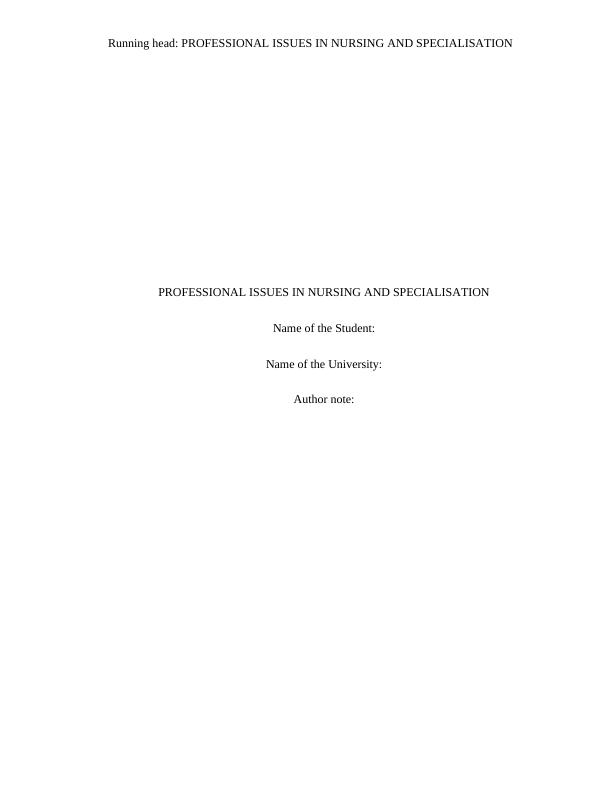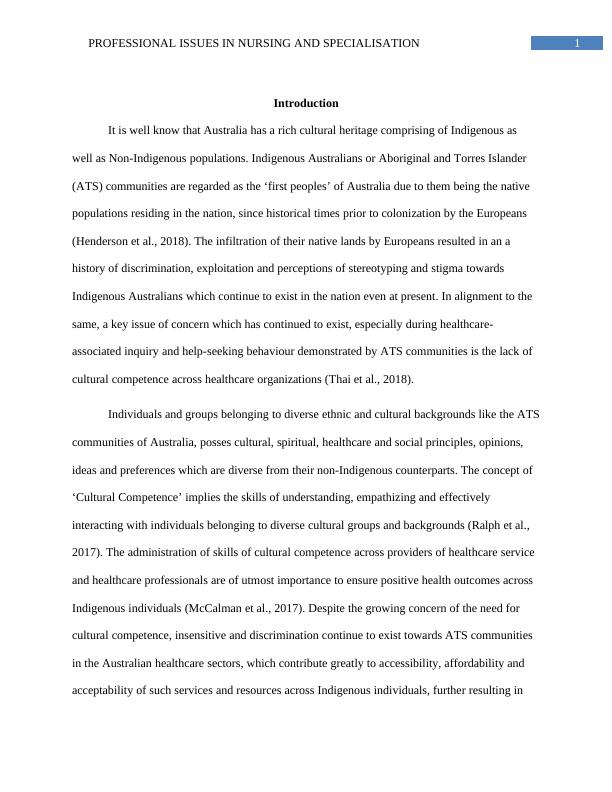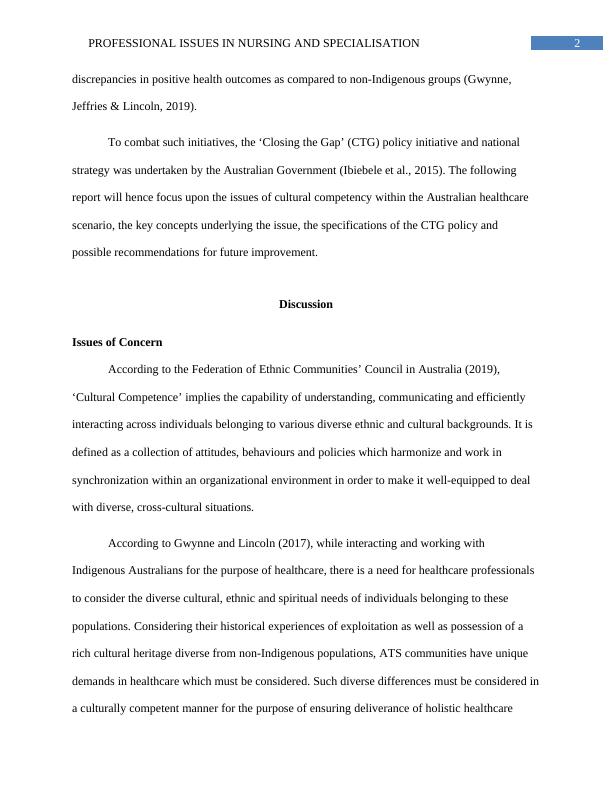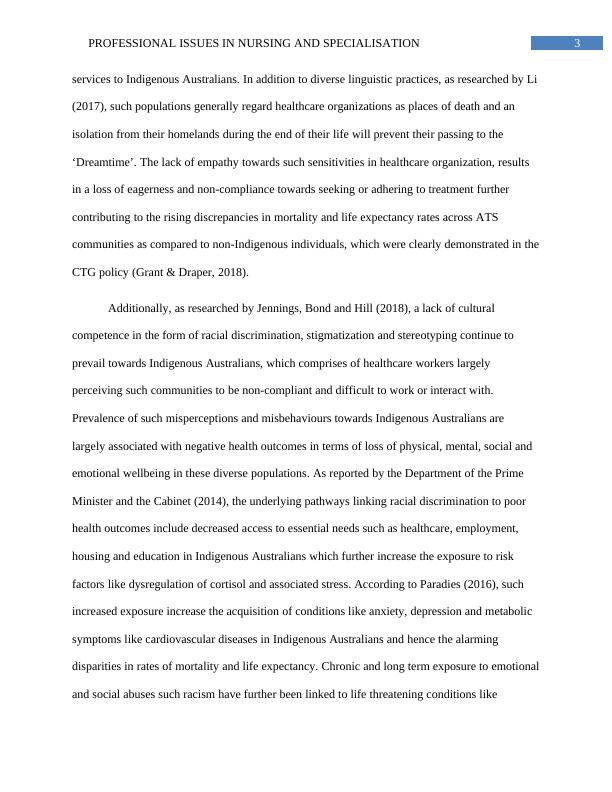Professional Issues in Nursing and Specialisation
16 Pages4696 Words1 Views
Added on 2023-01-04
About This Document
This document discusses the issues of cultural competence in the Australian healthcare system, specifically in relation to Indigenous Australians. It explores the lack of cultural competence and its impact on healthcare outcomes for Indigenous communities. The document also discusses the 'Closing the Gap' policy and its recommendations for improving cultural competence in healthcare organizations.
Professional Issues in Nursing and Specialisation
Added on 2023-01-04
ShareRelated Documents
End of preview
Want to access all the pages? Upload your documents or become a member.
Assignment on Nursing Profession
|5
|1286
|80
Contemporary Ethical Systems in Healthcare for Australian Indigenous Patients
|6
|1045
|450
REM Framework: Registered Nurses
|6
|985
|36
Delivering Culturally Safe Care of the Diabetic Patient in an Indigenous Australian Community
|4
|726
|451
Cultural Safety and Healthcare for Aboriginal and Torres Strait Islander Communities in Australia
|4
|585
|96
Exploring the impact of Policy on Health | Essay
|9
|2526
|15




